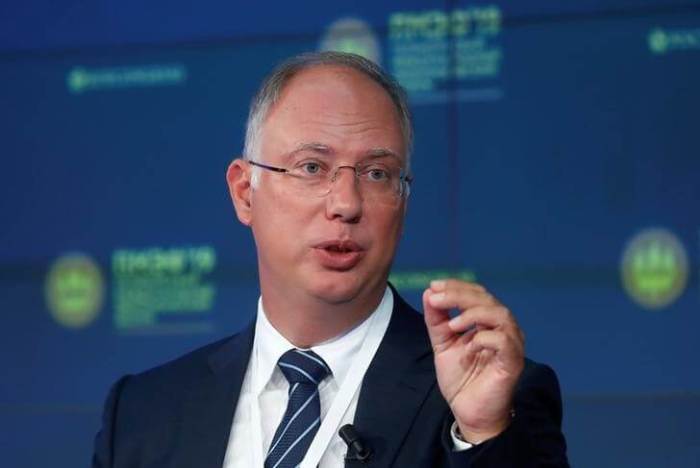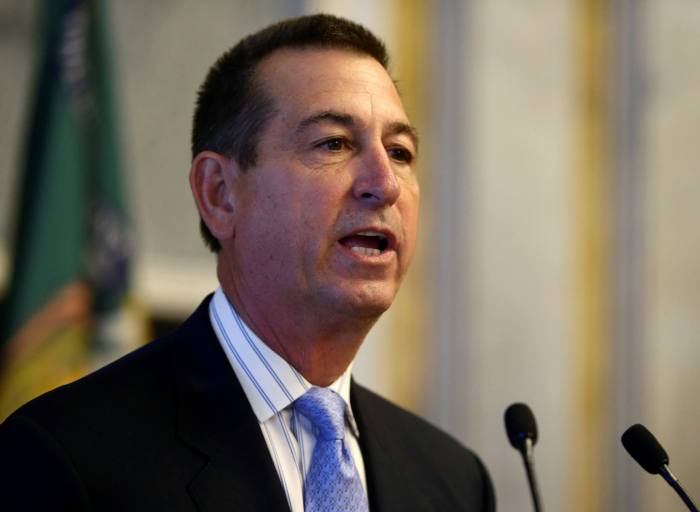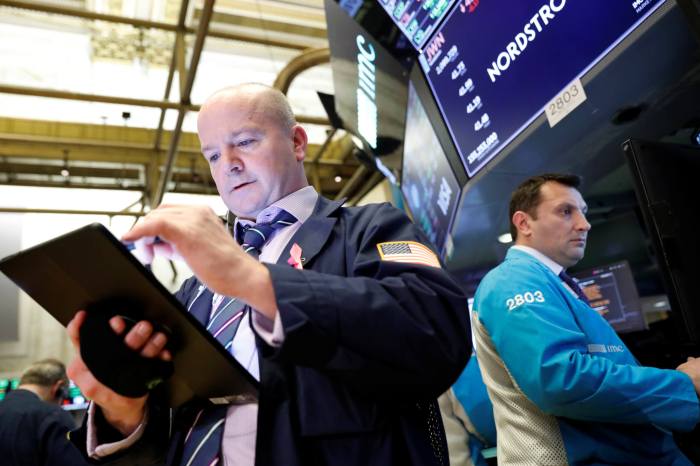By Megan Davies and Kate Duguid
NEW YORK (Reuters) – Investor worries about corporate credit are heating up as the coronavirus spreads, with the prices of bond funds taking a hit, companies starting to draw on credit lines and some market watchers warning of the possibility that investors pull out of products.
Investors are growing increasingly concerned that the coronavirus outbreak will hit U.S. corporate cash flow if it keeps workers at home or prevents companies from paying employees.
“The problem for this cycle in corporate credit risk is that’s where you had the greatest excess – where you had the biggest build-up in leverage, the biggest deterioration in underwriting standards,” said Troy Gayeski, co-chief investment officer of SkyBridge, an alternative investments firm. “When you have a growth shock like we are clearly having, then the more vulnerable areas of the economy have less ability to manage their balance sheets.”
Closed-end high-yield bond funds fell on Wednesday – some by nearly twice as much as the broader high-yield market – as investors wary of risk pulled out of the leveraged products.
“There are asset managers that hold relatively illiquid assets like high-yield bonds or loans, and the risk is that the investors in those asset managers might decide to redeem their shares quickly,” Tobias Adrian, director of the International Monetary Fund’s Monetary and Capital Markets Department, said in an interview.
The worry was at the riskier end of the fixed-income space, including high-yield bonds, leveraged loans and emerging markets debt, Adrian said.
Zoltan Pozsar at Credit Suisse wrote in a research note last week of the risk that many corporations draw on their credit lines at the same time, and what could be an idiosyncratic shock becomes systemic.
The underlying funding mechanics of such a massive liquidity call could be “overwhelming for the repo and FX swap markets,” Pozsar wrote.
Higher demand for dollar funding has investors on guard for the kinds of money market stresses that tend to exacerbate cross-border financial crises.
Among corporations that are feeling the strain is Boeing Co Bloomberg reported that Hilton Worldwide plans to draw down a portion of its $1.75 billion loan. Hilton did not respond to a Reuters request for comment. Bloomberg also reported that private equity firm Blackstone Group Inc “The fact that Hilton and Boeing are drawing on credit lines is indicative of poor sales, and we look for credit spreads to blow out, especially in the BBB- or lower credits,” said John Lekas, chief executive and senior portfolio manager at Leader Capital. Junk bonds are pricing in a higher level of default and spreads over safer Treasuries widened this week to levels not seen since 2016, using the ICE/BofA high yield index.
An index for credit insurance protecting against exposure to junk bonds Boeing’s credit default swap The spread between one-day commercial paper rate for high-grade AA non-financial borrowers versus the next tier down – where Boeing sits – is the highest in about two years.
S&P said it did not believe that Boeing drew on the facility because it had an immediate need for the cash, “but to just have it in the bank in case the current market disruptions for some reason made it difficult for them to access it in the future.” That would not cause a change in the rating, S&P said.
David Erickson, a senior fellow and lecturer at the University of Pennsylvania’s Wharton School who previously worked on Wall Street in equity capital markets with Lehman Brothers and Barclays, compared the situation to late-2008 when “given the uncertainty of the time we were in at that time, a lot of companies that needed access to liquidity drew down the banks lines.” (Reporting by Kate Duguid and Megan Davies; additional reporting by Joshua Franklin; graphic by Dan Burns; Editing by Leslie Adler)



















